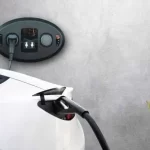Why You Should Keep Your Vehicle’s Key or Fob on a Separate Key Ring
Have you ever thought twice about the weight of your key ring? Many of us carry a hefty bunch of keys, from house keys to gate keys, and even those mysterious keys to storage units. Most of the time, it’s just a minor inconvenience when the jingle from your overloaded key ring disrupts the silence. But what if I told you that there’s a compelling reason to reconsider the contents of your key ring, particularly when it comes to your vehicle’s key or fob?
In this article, we’re about to unravel a hidden truth that might surprise you. Your vehicle’s key or fob should not share space with other keys on the same ring. Why, you ask? The answer lies in the delicate inner components of your vehicle’s ignition cylinder. Ignition cylinders were not designed to bear the weight of a heavy key ring, and this seemingly harmless practice can have significant consequences.
We’ll delve into the ‘why’ behind this advice, explore expert insights, share personal experiences, and provide you with a simple yet vital solution that can prevent future headaches and potentially dangerous situations. So, let’s get into the details and discover why it’s crucial to keep your vehicle’s key or fob on a separate key ring.3
The Problem with Overloaded Key Rings
If you’ve ever wondered why it’s essential to keep your vehicle’s key or fob separate from the rest of your keys, the answer lies in the potential havoc it can wreak on your car’s ignition system. Ignition cylinders are delicate pieces of machinery not designed to withstand the weight of a heavy key ring.
Damage to Sensitive Interior Components
Imagine the inner workings of your car’s ignition cylinder as a finely tuned orchestra, each part playing its role precisely. When you attach a heavy key ring to your vehicle’s key or fob, it’s akin to dropping a sledgehammer into the middle of this delicate performance.
Consequences of Ignoring the Issue
Now, let’s consider the consequences. Every time you hit a bump, make a sharp turn, or endure vibrations during your drive, the weight of that overloaded key ring tugs on the ignition cylinder. Over time, these constant stresses take their toll. The delicate inner elements begin to wear down, causing a domino effect of problems.
Getting Locked Out: One common issue is finding yourself locked out of your car. The wear and tear can lead to the key or fob not engaging properly with the cylinder, leaving you stranded.
Starting Problems: Starting your car may become an ordeal as the ignition cylinder’s functionality deteriorates. You might experience delays or difficulties in getting your vehicle to start.
Ignition Issues on the Move: Perhaps the most alarming scenario is experiencing ignition problems while driving. As the weight shifts around, it can cause the key to disengage from the ignition cylinder spontaneously. Imagine driving, and suddenly, you can pull the key out of the ignition while the car continues to move—an unsettling and potentially hazardous situation.
Real-Life Example
To illustrate the severity of this issue, consider Lauren Milligan‘s story. She shared, “My husband, years ago, had probably three dozen keys on his ring. The weight shifted around the ignition so badly that while he was driving, he could pull the key out of the ignition and continue to drive. Before that happened, my husband’s mechanic warned him plenty of times about how his key ring was too heavy.”
The implications are clear: what may seem like a small and insignificant detail can have a significant impact on the safety and functionality of your vehicle.
Expert Insights
To understand why overloading your key ring with various keys is a practice best avoided, it’s essential to heed the advice of experts in the field. Jack McKenzie, a knowledgeable source from AutoAccessoriesGarage.com, sheds light on the matter.
According to McKenzie, “Too many keys on your key ring can damage the sensitive interior components of your ignition cylinder.” This straightforward statement highlights the crux of the issue. The ignition cylinder within your vehicle was never intended to bear the weight of a bulky key ring. It was designed to serve as a precise, responsive mechanism, not a keychain.
It’s important to recognize that ignition cylinders are intricate systems comprised of sensitive parts that work in harmony. When you introduce excessive weight to the equation, the delicate balance is disrupted.
One may wonder how much of an impact the added weight can truly make. The answer lies in the cumulative effect of constant stress. Every bump in the road, each sharp turn, and every vibration gradually takes its toll on the ignition cylinder. Over time, these seemingly minor disturbances can cause significant wear and tear on the inner components.
The takeaway from expert insights is crystal clear: your vehicle’s ignition cylinder simply wasn’t engineered to withstand the weight of an overloaded key ring. Any compromises in its functionality can lead to inconvenience at best and potentially dangerous situations at worst.
Personal Experience
It’s one thing to understand the theory behind the potential problems of an overloaded key ring, but sometimes it’s the personal anecdotes that drive home the message. Here’s a real-life story that emphasizes the seriousness of this issue.
Lauren Milligan shared her husband’s experience: “My husband, years ago, had probably three dozen keys on his ring. The weight shifted around the ignition so badly that while he was driving, he could pull the key out of the ignition and continue to drive. Before that happened, my husband’s mechanic warned him plenty of times about how his key ring was too heavy.”
This firsthand account is a stark reminder that this is not a theoretical concern. It’s a situation that someone actually faced. Imagine being behind the wheel, and suddenly, you can effortlessly pull the key out of the ignition while your car continues to move. It’s not just an inconvenience; it’s a potential hazard.
The Weight Shift Effect
Lauren’s husband’s experience highlights how the weight of an overloaded key ring can cause the key to move around within the ignition. When it shifts too much, it can disengage from the cylinder, posing a risk of unexpected ignition issues while driving.
This personal story underscores the gravity of the problem and serves as a valuable cautionary tale for all vehicle owners. It shows that even something as seemingly insignificant as the weight of your key ring can have far-reaching consequences for your vehicle’s safety and functionality.
The Simple Solution
Now that we’ve explored the potential issues that can arise from overloading your key ring and heard a real-life example of the consequences, it’s time to discuss the straightforward remedy for this problem.
The first step in preventing future headaches and potential dangers is to inspect your key ring. It’s a quick and easy process that can make a world of difference. Here’s what you can do:
Separate Your Vehicle’s Key or Fob: The key to this solution is simple – keep your vehicle’s key or fob on its own key ring. This means removing it from the jumble of other keys you carry around.
Lighten the Load: While you’re at it, consider decluttering your key ring. Remove any unnecessary keys or keychains to reduce the overall weight.
What makes this solution particularly appealing is its simplicity. It doesn’t require any technical expertise or costly repairs. It’s a preventive measure that anyone can take, regardless of their knowledge of cars.
By taking these steps, you ensure that your vehicle’s key or fob is no longer subject to the stresses and strains of an overloaded key ring. It remains in optimal condition, ready to perform its crucial role reliably.
By following this advice, you not only safeguard your vehicle but also ensure your peace of mind. You won’t have to worry about getting locked out, experiencing starting problems, or facing unexpected ignition issues while driving.
So, don’t delay – inspect your key ring today and make the necessary adjustments. It’s a small change that can lead to significant benefits in the long run.
10 Comprehensive List of Tips
To ensure that you handle your keys wisely and avoid any further complications, here is a comprehensive list of tips and guidelines:
1. Keep Your Vehicle’s Key or Fob Separate:
When you separate your vehicle’s key or fob onto its own key ring, you ensure that it’s not subjected to the additional weight and stress caused by other keys or keychains.
This separation prevents the constant jingling and movement of keys that can lead to wear and tear on the ignition cylinder.
2. Declutter Your Key Ring:
Regularly assess the keys and keychains on your key ring. Remove any keys that you no longer use or need.
By decluttering your key ring, you reduce its overall weight and minimize the potential for damage to the ignition cylinder.
3. Choose a Lightweight Key Ring:
Selecting a lightweight and durable key ring is essential. Look for materials like stainless steel, aluminum, or plastic.
Lightweight key rings help minimize the load on the ignition cylinder while providing a secure and practical way to organize your keys.
4. Avoid Excessive Keychains:
Limit the use of large or heavy keychains that can add unnecessary weight and bulk to your keys.
Opt for minimalist and functional keychains that serve their purpose without putting additional strain on your ignition cylinder.
5. Regular Maintenance:
Regularly inspect your vehicle’s key and ignition system for any signs of wear and tear, such as damaged keys or key fobs.
Address any issues promptly by consulting a qualified mechanic to prevent further damage and ensure optimal performance.
6. Consult Your Mechanic:
If you suspect any problems with your ignition system, it’s advisable to consult a professional mechanic.
A mechanic can conduct a thorough inspection, identify any potential issues, and perform necessary repairs or maintenance.
7. Share the Knowledge:
Spread awareness about the importance of keeping vehicle keys separate among family members, friends, and colleagues.
Educate others about the potential risks associated with overloading key rings and the simple steps they can take to prevent problems.
8. Spare Keys:
If you have spare keys for your vehicle, store them in a safe and secure location, separate from your primary keys.
Keeping spare keys separate ensures that you have a backup in case of emergencies without compromising the condition of your primary key.
9. Consider Smart Key Systems:
Modern vehicles often come equipped with smart key systems that eliminate the need for a physical key altogether.
Consider upgrading to a smart key system if your vehicle supports it, as it can offer convenience and enhance security.
10. Don’t Overload Your Key Ring:
The golden rule is to avoid the temptation to add more keys than necessary to your key ring.
Keep your key ring streamlined and efficient, ensuring that it remains lightweight and functional.
By following these tips, you’ll not only maintain the integrity of your vehicle’s ignition system but also ensure the safety and reliability of your daily drives.
Your Vehicle’s Key Deserves a Space of Its Own
In the world of vehicle maintenance and safety, sometimes the most critical details hide in plain sight. Your key ring, seemingly mundane, can hold the key to ensuring the longevity and reliability of your vehicle’s ignition system.
We’ve delved into the ‘why’ behind the importance of keeping your vehicle’s key or fob on a separate key ring. Expert insights and real-life experiences have reinforced the need for this simple yet effective solution.
Remember Lauren Milligan’s husband, who could pull his key out of the ignition while driving due to a heavy key ring? It’s a vivid reminder that even a small, everyday practice can have significant consequences.
The good news is that the solution is within your reach. By separating your vehicle’s key or fob onto its own key ring and decluttering the rest, you take a proactive step towards preventing future issues. It’s a small change that can make a world of difference, ensuring that your vehicle starts reliably and operates safely.
So, as you reach for your keys today, take a moment to inspect your key ring and make the necessary adjustments. It’s a minor adjustment that can lead to major benefits in terms of vehicle safety, convenience, and peace of mind.
In the world of vehicle maintenance, sometimes the smallest changes can have the most significant impact. By following this advice, you’re not just protecting your keys; you’re safeguarding your journey.
Thank you for reading, and remember – your vehicle’s key deserves a space of its own!
The post Why You Should Keep Your Vehicle’s Key or Fob on a Separate Key Ring appeared first on Healthy Holistic Living.












